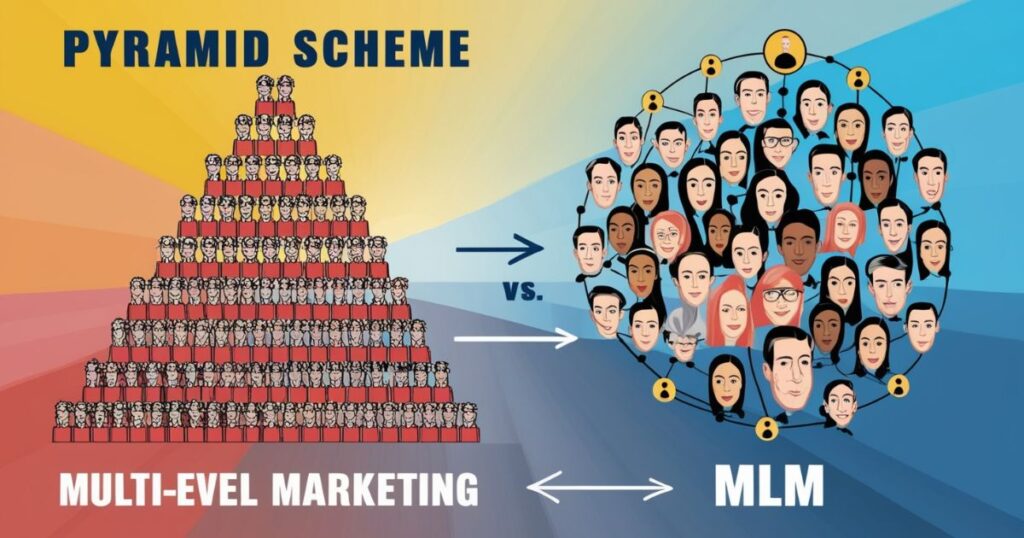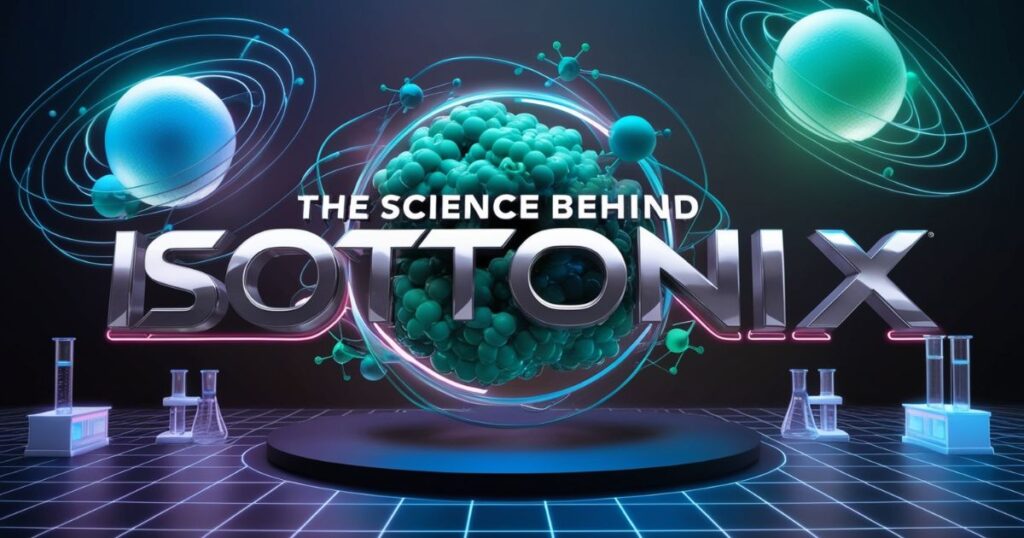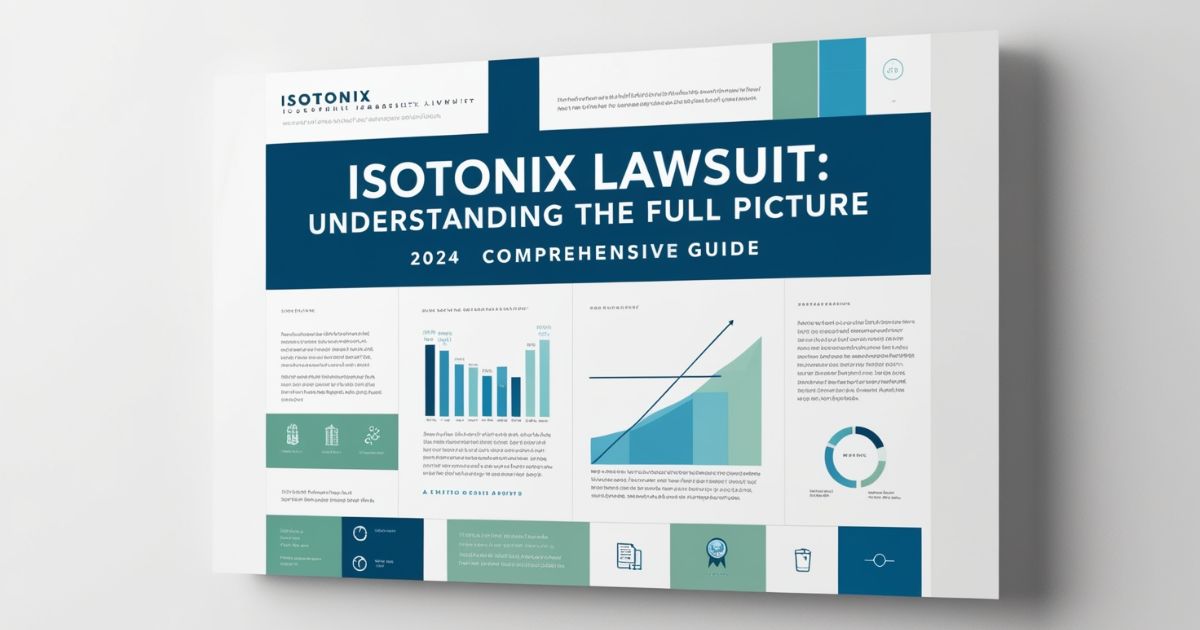In today’s complex health supplement landscape, few cases have garnered as much attention as the Isotonix lawsuit. This comprehensive analysis delves deep into every aspect of the controversy, offering crucial insights for consumers, industry professionals, and anyone interested in understanding the broader implications for the supplement industry.
What is Isotonix?
At its core, Market America’s flagship supplement line represents a significant innovation in nutrient delivery technology. The fundamental principle behind Isotonix stems from advanced research in cellular biology and nutrient absorption.
Unlike traditional supplements that come in pill or capsule form, Isotonix products utilize a sophisticated powder delivery system that creates what scientists call an isotonic solution when mixed with water.
The term “isotonic” refers to a solution having the same fluid pressure as your body’s blood, lymph, and tears. This matching of pressures isn’t just a marketing gimmick – it’s based on fundamental principles of cellular biology.
When substances share the same osmotic pressure as your body’s fluids, they can potentially pass through cellular membranes more efficiently.
Market America’s development of this system emerged from collaboration with nutritional scientists and biochemists in the early 1990s. The goal was to address a persistent problem in the supplement industry: the poor absorption rates of traditional pills and capsules. Studies had shown that many traditional supplements were being passed through the digestive system without full nutrient extraction.
The Appeal of Isotonix
The growing attraction to Isotonix products stems from multiple sophisticated factors that extend beyond simple marketing. The concept of enhanced bioavailability represents just the beginning of what draws consumers to these products. Clinical observations suggest that the isotonic delivery system might offer particular benefits for several specific groups:
Seniors with compromised digestive systems often report easier tolerance of the liquid format. Athletes seeking rapid nutrient replacement show interest in the quick absorption potential.
Individuals with pill anxiety find the powder-to-liquid transformation process more manageable than traditional supplementation methods.
The company’s comprehensive approach to formulation also sets it apart. Rather than offering isolated nutrients, Isotonix products feature carefully calibrated combinations designed for synergistic effects. For instance, their calcium supplements include complementary minerals that support optimal absorption and utilization.
The Background of the Isotonix Lawsuit

The legal challenges that emerged around Isotonix reflect broader issues within the supplement industry. The initial complaints that sparked the lawsuit originated from multiple sources, including consumer advocacy groups, competing supplement manufacturers, and regulatory bodies concerned about specific marketing claims.
The Federal Trade Commission began investigating Market America’s advertising practices in response to complaints about certain product claims. These investigations focused particularly on statements regarding absorption rates and therapeutic benefits.
Simultaneously, the FDA expressed concerns about compliance with dietary supplement labeling requirements and the language used in marketing materials.
A significant aspect of the controversy centered on the company’s use of scientific terminology in marketing materials. Critics argued that terms like “pharmaceutical grade” and “superior absorption” needed more substantial scientific backing.
The lawsuit also brought attention to the broader issue of how supplement companies communicate complex scientific concepts to consumers.
Also Read: Blind Frog Ranch Lawsuit Update 2024: Navigating Legal Entanglements
What Are the Claims About?
The complexity of claims surrounding the Isotonix lawsuit extends far beyond simple marketing disputes. The legal proceedings unveiled layers of concerns about how supplement companies communicate scientific information to consumers. The primary allegations centered on several interconnected issues that reflect broader industry challenges.
Marketing materials came under intense scrutiny for their use of scientific terminology. Claims about absorption rates suggested that Isotonix products achieved significantly higher bioavailability than conventional supplements.
While the isotonic delivery system’s theoretical framework appeared sound, regulators questioned whether sufficient clinical evidence supported specific numerical claims about superior absorption percentages.
FDA compliance issues emerged as another critical concern. The regulatory framework governing dietary supplements differs substantially from pharmaceutical regulations, yet companies must still adhere to strict guidelines about marketing claims.
The lawsuit highlighted instances where marketing materials potentially crossed the line between permissible structure-function claims and impermissible disease treatment claims.
Understanding the Multi-Level Marketing Aspect
The MLM structure of Market America adds another layer of complexity to the Isotonix situation. This business model, while legal when properly implemented, creates unique challenges in controlling marketing messages. Independent distributors, eager to generate sales, sometimes made claims exceeding approved marketing parameters.
Market America’s compensation structure rewards distributors through a sophisticated dual-tracking system. The primary track focuses on direct product sales to consumers, while the secondary track provides compensation for building and managing successful sales teams. This complexity led to questions about whether the emphasis truly remained on product sales rather than recruitment.
The company’s training programs underwent significant revision during the legal proceedings. New compliance modules emphasized the importance of staying within approved marketing guidelines.
The challenge lay in balancing distributor enthusiasm with regulatory requirements, particularly regarding health claims and financial opportunities.
Pyramid Scheme vs. MLM: What’s the Difference?

The distinction between legitimate Multi-Level Marketing and illegal pyramid schemes becomes crucial in evaluating Market America’s business model. Legitimate MLMs generate primary revenue through genuine product sales to actual consumers outside the distributor network.
The Isotonix product line’s substantial retail presence and customer base outside the distributor network suggest alignment with legitimate MLM characteristics.
Market America’s compensation structure underwent detailed examination during the legal proceedings. Financial records indicated significant revenue from product sales rather than recruitment fees, a key indicator of legitimate MLM operations. The company’s longevity in the market also suggests sustainable business practices rather than the rapid collapse typical of pyramid schemes.
Independent analysis of the company’s revenue streams revealed that successful distributors typically generated substantial income from product sales. While team-building bonuses contributed to earnings, they remained secondary to direct sales revenue. This balance aligns with legitimate MLM operations rather than pyramid scheme characteristics.
What Were the Outcomes of the Lawsuit?
The resolution of the Isotonix lawsuit brought significant changes to Market America’s operations. The company faced several legal challenges and responded with substantial modifications to their business practices and marketing approach.
Key outcomes included:
- Enhanced transparency in marketing materials
- Revised product claims based on available scientific evidence
- Strengthened compliance procedures
- Updated distributor training programs
- Modified compensation structure
Settlements and Changes
The settlement agreements prompted Market America to implement comprehensive reforms. The company invested heavily in regulatory compliance, establishing stricter internal review processes for marketing materials and product claims.
Notable improvements included:
“We’ve completely revamped our compliance training,” stated a Market America representative. “Our goal is to ensure every distributor understands and follows proper marketing guidelines.”
The company also strengthened its scientific advisory board, bringing in independent experts to review product claims and research. This move demonstrated a commitment to building stronger scientific foundations for their products.
The Science Behind Isotonix

The Absorption Advantage
The scientific principle behind Isotonix centers on osmotic pressure. When a solution matches the body’s natural concentration (isotonic), nutrients can theoretically pass more easily through the intestinal wall. This concept builds on established physiological principles about nutrient absorption.
Market America claims their products achieve optimal absorption through:
- Precise osmotic balance
- Carefully calculated nutrient ratios
- Specific mixing instructions
- Pharmaceutical-grade ingredients
Scientific Studies
Research on Isotonix products presents a complex picture. While the basic science behind isotonic delivery appears sound, independent studies specifically examining Isotonix products remain limited.
Available research focuses on:
- Absorption rates compared to traditional supplements
- Bioavailability of specific nutrients
- Safety and tolerance studies
- Clinical outcomes in various populations
Customer Feedback: Real-World Experiences
The real test of any product lies in consumer experiences. Customer testimonials about Isotonix products reveal a mix of perspectives, offering valuable insights into real-world effectiveness.
Positive Experiences
Many users report significant benefits:
“After three months of using Isotonix supplements, I noticed a remarkable improvement in my energy levels,” shares Sarah M., a long-term customer.
Others praise the:
- Easy-to-drink format
- Quick absorption
- Minimal digestive issues
- Noticeable results
Areas of Concern
Some customers express reservations about:
- Premium pricing compared to traditional supplements
- The taste of certain products
- The MLM distribution model
- Consistency of results
Comparative Analysis: Pros and Cons
| Advantages | Disadvantages |
| Rapid absorption | Higher cost |
| Isotonic delivery | Limited availability |
| No pill swallowing | MLM structure |
| Wide product range | Mixed scientific evidence |
| Quality ingredients | Taste preferences |
What Does This Mean for Consumers?
The aftermath of the Isotonix lawsuit brings important considerations for current and potential consumers. Market transparency has improved significantly, allowing for more informed decision-making. Understanding both the benefits and limitations of these supplements helps create realistic expectations.
Making smart choices about supplements requires careful evaluation of personal health needs, budget considerations, and available alternatives. The enhanced regulatory oversight resulting from the lawsuit means consumers now have access to more accurate information about product efficacy and safety.
Tips for Making an Informed Decision
When considering Isotonix products, thorough research becomes essential. Consulting healthcare providers about specific nutritional needs creates a foundation for smart supplementation choices.
Scientific evidence should guide product selection, while personal health goals determine which formulations might prove most beneficial.
Consider tracking results systematically when starting any new supplement regimen. This approach helps evaluate effectiveness and justifies the investment in premium-priced products. Remember that supplements complement, rather than replace, a balanced diet and healthy lifestyle.
Optimistic Outlook for Isotonix Users
Despite past controversies, Isotonix maintains a loyal customer base. The company’s response to legal challenges demonstrates commitment to improvement and customer satisfaction. Product innovation continues, with new formulations addressing emerging health concerns.
Market America’s investment in research and development suggests ongoing enhancement of their supplement line. The focus on quality control and scientific validation provides reassurance to long-term users while attracting new customers seeking effective supplementation options.
Why People Continue to Trust Isotonix
Consumer confidence in Isotonix stems from several factors. The unique delivery system offers genuine advantages for those who struggle with traditional supplements. The company’s transparency about ingredient sourcing and manufacturing processes builds trust.
A significant factor in continued loyalty comes from personal experiences. Many users report sustained benefits from long-term use, particularly with flagship products like OPC-3 and the multivitamin formulations. The comprehensive product range allows customers to address various health concerns through a single supplementation system.
Isotonix Lawsuit: Moving Forward
The future of Isotonix appears focused on balancing innovation with compliance. Market America has strengthened its commitment to regulatory adherence while maintaining the unique aspects that differentiate their products. This evolution suggests a more mature approach to supplement marketing and distribution.
Industry observers note positive changes in company practices: “The lawsuit served as a catalyst for meaningful improvements in how supplement companies communicate with consumers,” notes a prominent industry analyst. These changes benefit the entire dietary supplement sector.
FAQ’s
Is Isotonix still safe to use?
Yes, the products undergo rigorous testing and comply with current FDA regulations for dietary supplements. The lawsuit focused primarily on marketing practices rather than product safety concerns.
How does the isotonic delivery system work?
The system creates a solution matching your body’s fluid concentration, potentially enabling faster nutrient absorption in the small intestine.
Are there alternatives to Isotonix products?
Several companies offer powder-based supplements, though Isotonix’s specific formulations and delivery system remain unique in the market.
What changes resulted from the lawsuit?
Enhanced transparency, improved marketing practices, stronger compliance measures, and better scientific validation of product claims.
Final Thoughts on the Isotonix Lawsuit
The Isotonix lawsuit marks a significant milestone in dietary supplement industry evolution. Through addressing regulatory concerns and improving business practices, Market America has demonstrated adaptability and commitment to consumer welfare. The experience offers valuable lessons about the importance of balanced marketing claims and scientific validation in the supplement industry.
For consumers, the outcome provides greater assurance of product quality and marketing integrity. The company’s response to legal challenges strengthens its position as a serious player in the nutritional supplement market. Moving forward, the focus on scientific validation and regulatory compliance suggests a positive trajectory for both the company and its customers.
Understanding this complex situation helps consumers make informed decisions about their supplementation choices. Whether choosing Isotonix products or exploring alternatives, the key lies in matching personal health needs with products backed by sound science and transparent business practices.
Explore the latest news and insights from Echozynth and beyond at Echozynth.com

Kiara Arushi is the dedicated admin of this personal website, which serves as a comprehensive hub for general information across various topics. With a keen eye for detail and a passion for knowledge sharing, Kiara curates content that is both informative and engaging, catering to a diverse audience.
Her commitment to providing accurate and up-to-date information ensures that visitors find valuable insights and practical tips in every post. Whether you’re seeking the latest trends or timeless advice, Kiara’s expertise makes this site a trusted resource for all.


